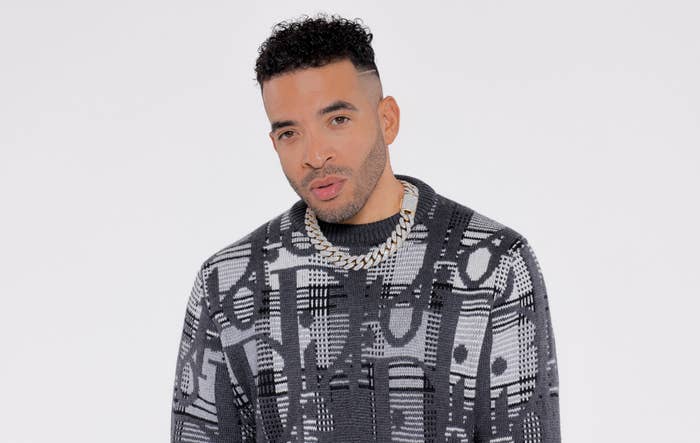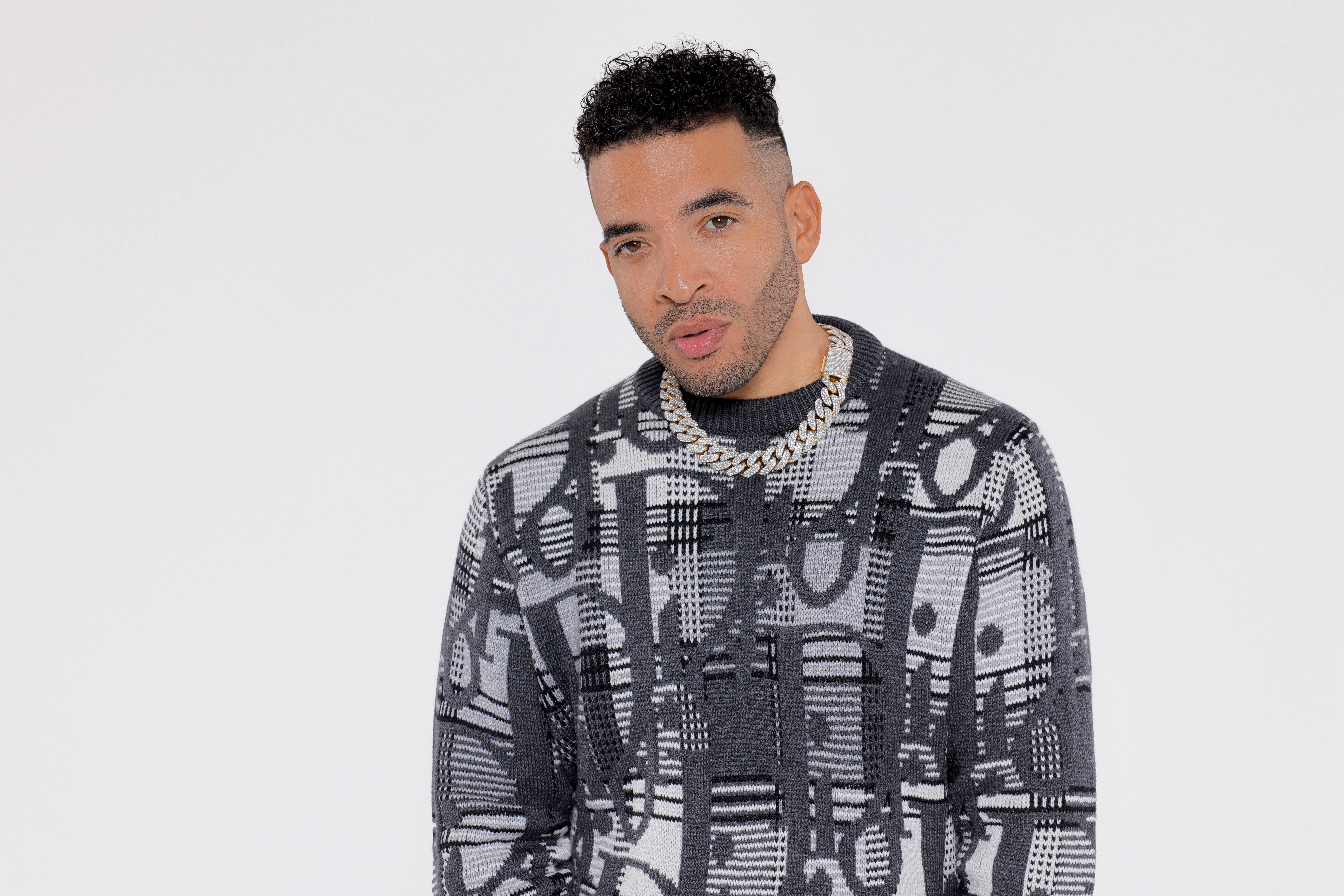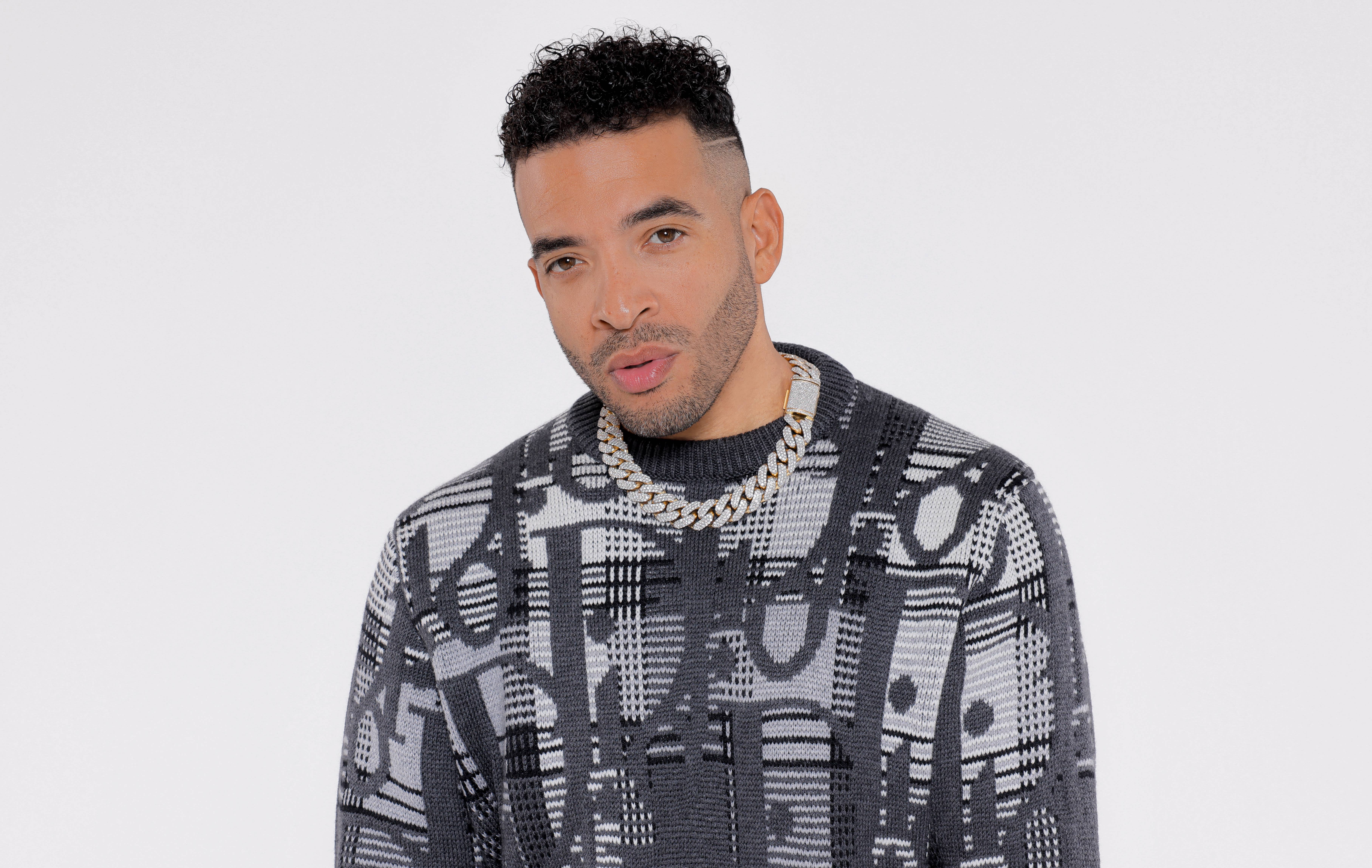
What is a culture critic? A phrase not yet solidified in the dictionary, but according to Wikipedia, it's a person who critiques a given culture. Media magnate Jason Lee refers to himself as such, so much so that he says he trademarked the tagline.
If there's any more indication of Lee’s eminent impact on current culture, it would be his placement on our Hip Hop Media Power Ranking list. Coming in at No. 11, Lee has solidified himself as a top contender when it comes to dishing out exclusive celebrity content the public wants. And his rise has been strategic.
"What I love about coming to Complex is that when you talk about my story, it doesn't start with Love & Hip Hop,” Lee says. “That's when the world became familiar with who I was because it was such a huge show. And I have this love-and-hate relationship with that. Because yes, I was put in front of millions of people every week, and I was able to launch a business and grow a $50 million brand from Instagram and a reality show. But when you look at what I've accomplished, and when you look at all the different rooms I've been in or tables that I've built for people who have the culture to eat at and share with me, it's almost in a way to discredit the contribution to the culture that I've given."
In the current media world, attention is a commodity; being able to keep the public watching is a gift, and Lee has shown us his talent for the sport for nearly a decade. And now, in partnership with REVOLT TV, The Jason Lee Show debuted in January, marking a new chapter for the Hollywood Unlocked CEO. With the first guest being his close friend Cardi B, Lee has consistently delivered viral content with interviews from Blac Chyna, Remy Ma, NLE Choppa, and more.
The public has had a front-row seat watching Lee turn his dreams of being a media mogul into reality. In a world where viewers want to know everything about their favorite creators, he adheres perfectly to that, putting his journey on display and transforming it into exciting content for public consumption.
"Once you get consumers to invest in you as a brand and spend their hard-earned money, you have an obligation to be transparent with them,” he tells Complex. “And you know, people want the money and fame, but they don't want the pressure. Sometimes it comes with that. I don't care. I want it all."
Jason Lee pulled up to our Manhattan office to discuss what viewers can expect from his new show, his close bond with Cardi B and Rihanna, what went down with Queen Elizabeth, working for Kanye, and more.
The interview below is lightly edited for clarity.
You have a new show in partnership with REVOLT TV. Talk to me about the evolution of doing your own thing with Hollywood Unlocked, previous ventures with the company, and this new merger with REVOLT TV.
I created Hollywood Unlocked Uncensored, the podcast, to put texture to my brand. After Love & Hip Hop, I felt that people wanted to see me one way, and I learned very quickly in 2016, when I developed the show, that as Black people, the people that are driving culture, you have to always stay in control of your narrative. I learned that early on from looking at how I was portrayed on reality TV, I couldn’t control that. I wasn’t in the editing bay. I could not even give creative feedback on how I was positioned. I was positioned to the world as a gay messy blogger when I had never even written a story. So once I saw that I knew I had to launch a show.
I was terrified to do a show by myself because I was very uncomfortable being on camera. Little known fact: I used to have to drink Hennessy before I could even do an interview. Having co-hosts, if you don’t know a question you can always lean on them or fall back and let them ask a question. And then you can jump back into it when you have time to think. So initially the podcast let the three of us talk about important things in a way that’s uncensored, unfiltered, unapologetic, and own everything we do on our own platform that can’t be manipulated through editing.
After doing that, for a while, having all the ups and downs of managing co-hosts or scheduling, I just felt like I had grown to a place where, with the pandemic and looking at Black Lives Matter and the lack of ownership of Black media and Black voices, I just decided that I wanted to step out and do something different. COVID made us go from being in the studio with each other to being online. And that disconnect from being in the room with people just didn’t give me the energy and the passion that I had before.
Once we started to come out of COVID, I started thinking that most of the time when people have a successful run at something, the reason why it ends up not being successful is they don’t know when to quit. And when I say quit, it doesn’t mean quit and don’t do anything. It means quit and do something different. I felt like I had accomplished everything that I needed to, I was able to stay in control of my narrative. And that started the whole idea of The Jason Lee Show.
What made you want to hunker down and create your own brand instead of going to an outlet like Complex to see if you could be a correspondent or a reporter? Talk to me about the importance of building your own brand outside of just going to a company and working for them.
I did want to come to Complex when I saw the show you all did with Akademiks, Joe Budden, and Everyday Struggle. I started noticing that Complex does a phenomenal job of aligning brands with content and driving culture. And then the distribution of it. I love the Complex model. I also know the revenue share you all do for advertising, and I said I’m not giving away 50 percent of my advertising to Complex, although I love them. And so I looked at the Complex model and said, I want to build my model.
So building from scratch and not having investment money or having direct relationships with brands is hard, but I feel like I operate the best when I’m up against challenges. The reason why I created my own brand was a couple of things. One, I wanted to make the most money I could. I had an exit plan. I want to exit at X amount of revenue and be able to sell the brand. So that was No. 1. No. 2, I wanted to have complete control over my voice. I wanted to have full control over my schedule.
I realized early on that ownership was a level of freedom that nobody could give me, and I started to see the rise of cancel culture and people being deathly afraid of saying what they thought or felt without pissing people off. And I am an equal opportunity agitator. I feel like there are issues; I have issues, when I look at the pressure put on people outside of my community with proper pronouns. I think it’s complicated for us and it’s complicated for straight people, but we don’t allow straight people flexibility. So sometimes, I criticize my community. And then I also think that the hip-hop community is very transphobic or has issues with homophobia because they’re secretly sleeping with transwomen or they’re just equally attracted to men who look like me.
I look at the world with different optics. I look at it from a level of freedom where I can say what I want. Now, the thing that is similar to my deal with REVOLT is similar to my deal with FoxSoul or iHeart, anybody I’ve partnered with, is we license our content to folks who distribute it, and we share in the profit of the revenue, but I still am in full control of what I do, who I shoot, when I shoot. And with the new show, I love that I’ve talked to everybody from Cardi B to Laverne Cox to Blac Chyna. Hopefully, we will continue to diversify and create more inclusive experiences where we talk to people involved with the culture, no matter where they sit.
So you brought up cancel culture, which is a hot-button topic. Talk to me about where you stand on that subject.
Well, it depends on who you ask. If you ask people online, they say, “Well, you’re a part of cancel culture because you’re posting all the content we’re canceling people for.” And I always say, “Yeah, that’s a great perspective. And I welcome that debate.” We live in a Blueface and Chrisean world; some people follow them more than they follow the president. People probably don’t know about the issues with Russia and Ukraine, or China’s involvement, or where Kim Jong Un is. But they know where Blueface and Chrisean are; who’s to blame for that?
I always have that debate with people online when they say, “You’re messy.” I just play in the pool that you’re swimming in. Don’t be mad that I’m the one that benefits from it. I think cancel culture is literally canceling art. Comedians can’t be funny anymore. I lived and grew up in the era of Eddie Murphy. And if you look at Eddie Murphy’s stand-up where he said “F*gg*t,” I don’t know how many times, it was funny. And I was a young homosexual. I don’t use the F-word because y’all will probably try to cancel me. But the greatest part about ownership is you can’t turn the lights off on Hollywood Unlocked because I own the light switch.
Canceling culture is disrupting art. I want to get back to a place where accountability culture can be a real thing. When you look at Kanye, I think that’s a great example of accountability culture, because you know, words do have power, and we should use them responsibly. When you’re super neglectful of the world that you live in, you should be held accountable. But to cancel you? I mean, if you put out Yeezys today, would everybody buy them? Yes. So cancel culture? I don’t believe [in] it. I don’t believe it’s a real thing. It exists in the minds of Black people, but once we stop buying into it, and we keep pushing forward, and we push for more ownership and more independence and more power in our voices, and using those voices, I think it’ll go away, hopefully.
The Queen Elizabeth thing was a big deal. What was going on when that happened? Who’s the first person that called you? How did that happen?
Well, you know, I can’t reveal my source. If I tell you who told me, we could just pack it up and go home because you got the biggest story of the year right there. I could never say that. But what I will say is, it was crazy. I find it interesting. I think most people looked at it like, “Oh, you messed up, or you’re irresponsible.” Why were so many Black people dragging me on Black Twitter when we should be talking about all the blood diamonds the royal family stole from Africa? How many people died for the diamonds that this woman wore in her crown? The selective outrage in the world that we live in right now with cancel culture is just laughable. But that’s the truth because that’s the conversation that I wanted to have. It was a crazy experience.
The humility of it all is to display that you can make a mistake or get something wrong and you can survive it and get through it. Cancel culture doesn’t exist if you own your shit. When I worked through it after the queen really died, when she died in “the public” because we didn’t see the queen after I said she was dead. But I’m not saying that she wasn’t dead. I’m just gonna leave that right there. When she died, Black Twitter was saying Jason knew it. He had it first, and then Black Twitter flipped and I was the hero. I don’t consume any of that. The biggest lesson is if a world leader dies, probably take a day to sit on it, you know, maybe. But maybe not.
Jason, you have a lot of great relationships. As somebody that is a culture provider, how are you able to have Cardi B as your best friend and Rihanna a phone call away? How can you be a media person providing news and a source of information for the public but still have these private celebrity relationships?
I’m surprised that people are shocked at that because I try to do everything with integrity. I have a relationship with every celebrity that exists because we write about these people, but some of them choose to participate, and some choose not to. We’re still going to write about it. We’re still going to talk about you. We’re still going to talk about your music, your fashion. But when you participate, you engage, and you build the relationship. Perception is all based on proximity.
So the closer I am to the situation or the person, the closer I am to understanding that world a little bit more. I try to approach everything with integrity. There are relationships that I have with people that people don’t know about. I texted The Weeknd yesterday. What does The Weeknd need Jason for? Well, I like him, and he sees me. He sees I’m doing something great. He always texts me to say, “I’m proud of you. Congratulations on that,” but he’s not doing it to get me to write about him. Because he doesn’t need me to write about him. He’s super famous.
I think people can’t understand why I can have these relationships and do what I do. They think that you have to be shady or that I’m shady in doing what I do. And I’m not. There are times that I do give commentary that’s funny that comes off as shady. And yes, that is all intentional. Because I’m trying to drive a very specific point. I’m trying to get someone’s attention. But all that is very strategic. There’s no accidentally messy. It’s a very strategic mess that I’m addressing in a very strategic way.



